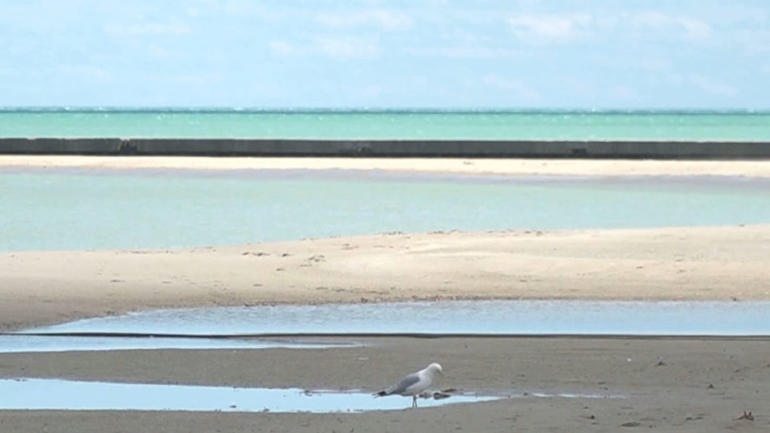The Great Lakes account for about one-fifth of the world’s supply of surface fresh water, provide home to an abundance of animal and plant life, and bring in more than $16 billion a year in recreation and tourism revenue.
But the region is under threat.
CGTN’s Dan Williams reports from Chicago.
A report, commissioned by the Chicago-based Environmental Law and Policy Center, claims the area is getting warmer faster than the rest of America.
Don Wuebbles, a professor of atmospheric science at the University of Illinois, led the climate change study.
“We’ve seen on the order of two degrees Fahrenheit increase in this region over the last 120 years,” he explained. “Part of the significance is that compared to the ice age, that was 15 degrees Fahrenheit colder than now. And that resulted in several hundred feet of ice above where we are sitting. So that is a very different climate. And we are expecting much larger changes over this century. And that is the really larger concern.”
So what does it all mean? One potential impact is an increase in extreme weather patterns such as flooding, severely impacting infrastructure, public health and agriculture.
The report also says changes to the lakes’ ecosystem will increase the number and severity of algae blooms, which could result in water that is unsafe to drink.
“The future could be that these lakes could become warm water ponds that are choked with algae and invasive species,” according to Joel Brammeier, president & CEO of the Alliance for the Great Lakes. ”Beaches that are world class in the summer become inaccessible and unusable, because the water that washes up on the shore line becomes toxic.”
The report says changes in precipitation would cut crop yields for both soybean and corn by as much as 30 percent. The reports aim? To spur local authorities into and invest in infrastructure upgrades.
The implications for the Great Lakes region are potentially devastating. But although the report paints a bleak picture, some environmentalists remain optimistic, so long as the threat is taken seriously.
“Mayors across the Great Lakes are paying attention to these issues, they are paying attention to the reality that if they can’t provide clean drinking water to their residents, they are not doing their job,” Brammeier said. “So if we emphasize that we can actually meet this challenge and that we have got to stay on track with our clean water goals, with our invasive species goals, we can adapt to the realities of climate change, while the important work of reversing the problem.”
 CGTN America
CGTN America

